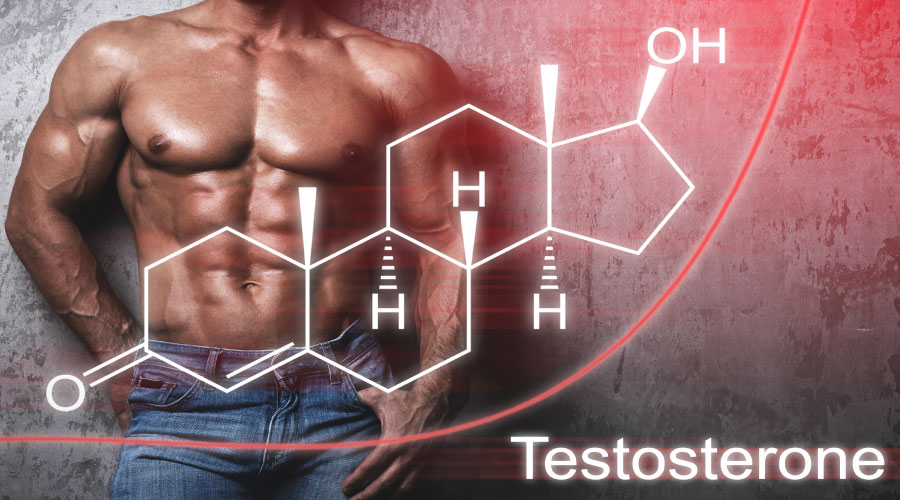
So many things about a man’s life are influenced by one single hormone, testosterone. From how he grows through puberty to the deep voice, muscle development, and sex drive, the level of hormone flowing through him plays a vital role. When testosterone levels are low, building muscles can become herculean, sexual activity may drop, and fatigue becomes the order of the day.
How Testosterone Influences Male Puberty
Testosterone causes the following changes to take place in your body during puberty:
- Your voice becomes deeper
- Your muscles and bones grow
- The reproductive organs develop
- You begin to grow facial, pubic, and body hair
- You grow taller more rapidly
The effect of testosterone doesn’t end with puberty. After puberty, the hormone continues to regulate bone density, muscle mass and strength, libido, sperm production, and fat distribution.
How Testosterone Influences Libido in Men
Sexual activity is a concern to most men, and this important part of their life is fundamentally regulated by the amount of testosterone they have. The hormone is produced in the testicles, flows into the brain, and revs up libido. Essentially, the hormone reinforces desire by making things smell, feel, and look sexier. But that’s not all.
Testosterone keeps the tissue of the penis healthy enough to support proper erection. When testosterone levels are low (Low T), the man may suffer from weak erections and may not feel any interest in sexual activity anymore. Sadly, many things can cause low testosterone in men as they get older, resulting in weak sexual activity and infertility that may negatively impact their relationships and marriages.
Factors that may cause Low T in Men
A drop in testosterone levels is a normal part of the aging process. After age 30, testosterone starts declining at a rate of 1% yearly in most men. A drop in sexual activity usually accompanies this. Most men put it down to getting older, but it’s actually a direct result of the declining hormone.
However, other non-natural factors may cause a reduction in testosterone, including not eating a healthy diet, stress, and hypogonadism.
Hypogonadism is a condition where there is a problem with the testicles or pituitary gland, resulting in lower production of testosterone. Hypogonadism may stem from a delayed start to puberty and can cause infertility issues. Obesity is linked to low T, so you might want to watch your weight gain if you don’t want to suffer low libido anytime soon.
Drugs and alcohol may also hamper testosterone production and function, as could some illnesses.
Symptoms of Low Testosterone
The symptoms of low testosterone can manifest in different ways depending on the time of life.
In your teens, the signs of low T can manifest as:
- Delayed puberty
- Underdeveloped genitalia
- Lack of facial hair and deeper voice
In adult men, the symptoms of low T include:
- Consistent Fatigue
- Low energy levels
- Low sex drive
- Low sperm count
- Erection problems
- Trouble sleeping
- Loss of muscle mass and strength
- Infertility
Not all men with experience low T the same way, and not all will even feel the impact. And it’s also worth knowing that many other health conditions can cause some of these symptoms, such as fatigue and trouble sleeping. So if you believe your problems are a result of low T, it’s best to go for a testosterone test. Thankfully, there are ways to improve testosterone production so you can feel energetic once more.
Is Low Testosterone Common?
Agreed, declining testosterone is a normal part of the aging process. However, this doesn’t mean every man will have low T at age 40. That said, the numbers are still worthy of concern.
According to one study, one in four men aged 30-79 had low testosterone levels (below 300 ng/dl). However, not all men felt the effects. In fact, some never knew they had low T.
Of the men tested, 12 percent reported experiencing low libido, with another 16 percent experiencing erectile dysfunction.
Nevertheless, low T can cause serious problems in a man’s health and personal life, whether he is aware he has the condition or not. Interestingly, the rate of low testosterone is on the rise, and experts expect a 38% rise by 2025.
Low testosterone levels are associated with other health problems, including:
- Sarcopenia
- Type 2 diabetes
- Obesity
- Unhealthy cholesterol levels
- Heart diseases
Final Thoughts
The challenges low testosterone can present in a man’s life are just another reason to practice healthy living. Eat healthy diets, manage stress properly, prioritize sleep, and minimize drinking and smoking as best you can. Doing these things can reduce your risks of a significant testosterone decline.
Leave a Reply